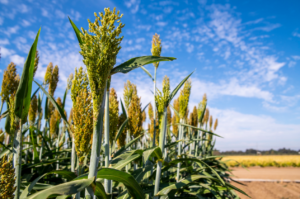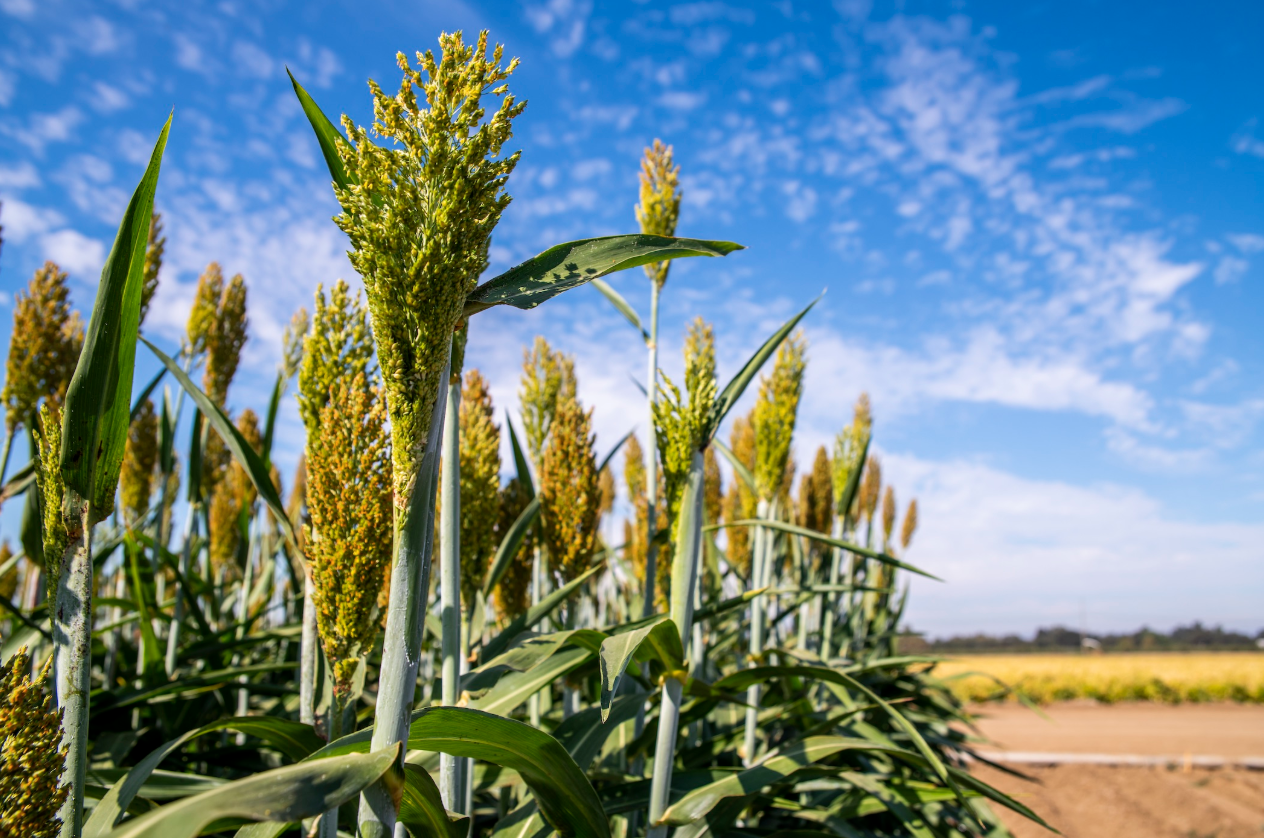
A field of sorghum, a grain that is often used as a biomass crop for production of ethanol and butanol. (Credit: Marilyn Chung/Berkeley Lab)
Plant cell walls contain a renewable, nearly-limitless supply of sugar that can be used as a carbon source for microbe-based chemical and biofuel production. However, retrieving these sugars isn’t all that easy.
Imidazolium ionic liquid (IIL) solvents are some of the best agents for extracting sugars from plants. But the sugars from IIL-treated biomass are inevitably contaminated with residual IILs that inhibit growth in bacteria and yeast, blocking biochemical production by these organisms.
Lawrence Livermore National Laboratory (LLNL) scientists and collaborators at the Joint BioEnergy Institute (JBEI) have identified a molecular mechanism in bacteria that can be manipulated to promote IIL tolerance, and therefore overcome a key roadblock in biofuel and biochemical production processes. The research appears in the Journal of Bacteriology.
According to lead author and LLNL biologist Michael Thelen, the team discovered that two bacillus strains and one mutant E. coli strain can withstand high levels of two widely used IILs thanks to special membrane pumps that transport the toxic solvents out of cells.
“Our results demonstrate the critical roles that transporter genes and their genetic controls play in IIL tolerance in their native bacterial hosts,” Thelen said. “This is another step toward engineering IIL tolerance into industrial strains.”
This Science Snapshot was adapted from a Lawrence Livermore National press release.




